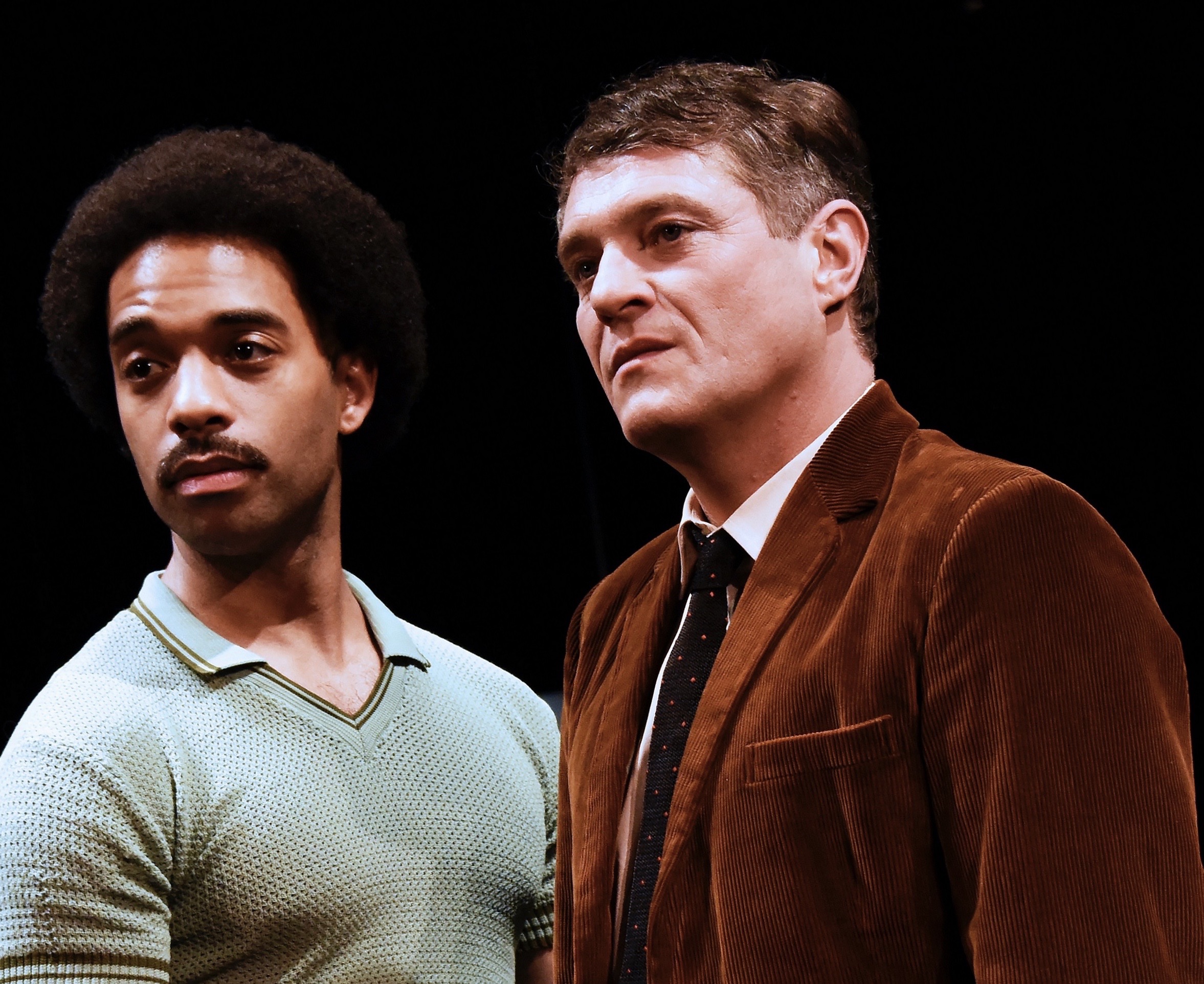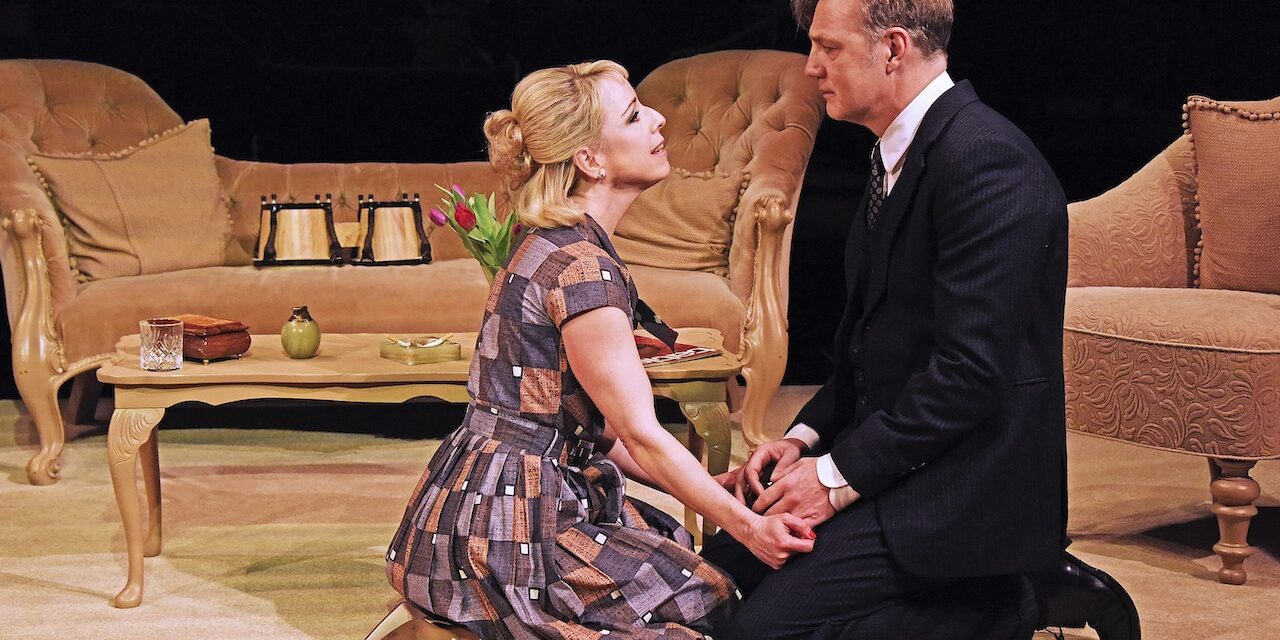
22 March – 20 April
These two plays have made the return journey, as it were, having started life as plays for television and found their way onto the stage as a kind of theatrical marriage, often being paired for an evening’s entertainment. Like Beckett, Pinter is neither actor proof nor director friendly. In the right hands however, both these playwrights sing with a distinctive voice that is instantly recognizable. Last night was a shining example of what Gielgud once described as, ‘Knowing the kind of play you are in’. The cast, to a man and woman, had the sense of how to flick the crystal to achieve the satisfying ring of flawless perfection. Again, when done well, Pinter offers the possibility of revealing – or perhaps more accurately hinting at – some new layer of meaning or angle of attack which has us coming back for more.
With much Pinter we are inevitably drawn into the use of language, in particular, as in The Collection, the way it is used as a kind of weapon to fence with an adversary or interlocutor, to obscure, to duck and dive. In this play the idea of, ‘knowing what kind of play you are in’ is problematic, for the simple reason that the characters deliberately obfuscate and challenge supposed narratives. Stella (Claudie Blakley) may or may not have had a one-night fling in Leeds with Bill (Elliot Barnes-Worrell). She calmly bats away all her husband James’ (Mathew Horne) insinuations and accusations. Indeed it’s not clear why he should be suspicious in the first place. And Bill seems to be living with his older lover Harry (David Morrissey) an effete collector of porcelain, in his luxurious Belgravia house. Is he gay and wouldn’t want to or bi and might have? All concerned have fun at the audience’s expense, whilst the latter in turn enjoy the multifarious mis-directions.
The Lover is a puzzle of a different kind. Infidelity is again the subject, but it is infidelity of a different order of psychological complexity. Richard (David Morrissey) and his wife Sarah (Claudie Blakley) have decided to pep up their marriage with a bit of role-play in which each acts as the adulterous lover of the other in regular afternoon assignations. The penny drops early on in the play and we enjoy the comedy of the situation until Richard begins to have a kind of psychological crisis in which his fantasy self becomes troubled by his real self and vice versa. Whether this is all about middle class suburban values or the wash from the tide of ‘free love’ or indeed something else, is for the hour or so of performance, an irrelevance. The action is easy to follow, if not decipher, and the intimate setting of the Ustinov is the perfect venue to watch acting of the highest quality. Messrs Morrissey and Blakley both have considerable stage presence and the intimate delight with which each observes the other’s performance is a theatrical pleasure not to miss.
Direction from Lindsay Posner in both pieces is acutely observed. The twists and turns of mood, the verbal sparring and shifting sands of uncertainty are all brought to the canvas with assurance and clarity.
Set and lighting by Peter McKintosh and Paul Pyant respectively all play a part in giving the production the stamp of excellence.
★★★★★ Graham Wyles, 4 April 2024
Photo credit: Nobby Clark


